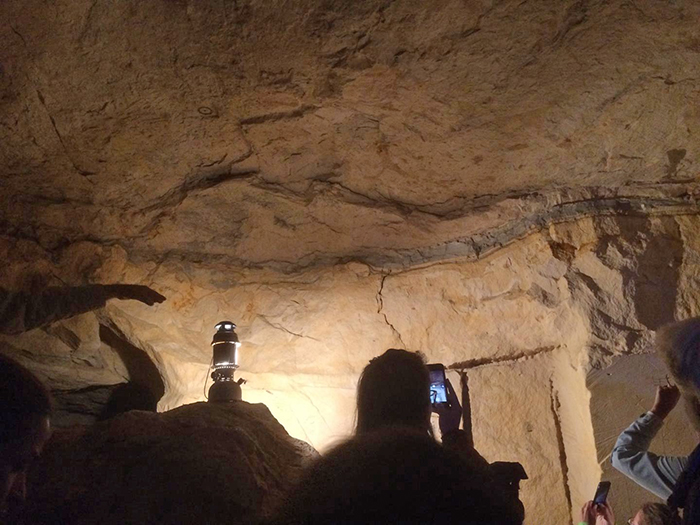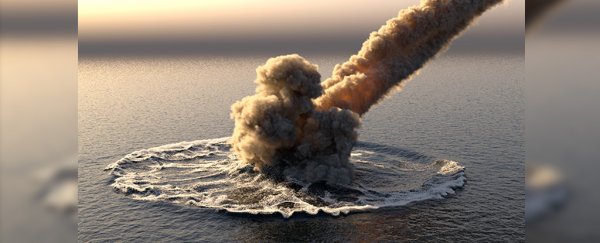We know that the Chicxulub impactor was responsible for the extinction of the land-based dinosaurs when it slammed into Earth some 66 million years ago. But new research shows the asteroid severely acidified the oceans too, wiping out much of the life residing underwater.
It's the first direct evidence scientists have found that the dino-destroying impact was also to blame for the instant acidification of the waters – enough to prompt a mass extinction that should act as a warning for us today.
Significant amounts of marine life were wiped out by the Chicxulub asteroid, the researchers say; it seems there wasn't a gradual build-up of acid levels caused by volcanic activity, as had been previously hypothesised.
"Our data speaks against a gradual deterioration in environmental conditions 66 million years ago," says geochemist Michael Henehan, from the GFZ German Research Centre for Geosciences. "Before the impact event, we could not detect any increasing acidification of the oceans."
"The ocean acidification we observe could easily have been the trigger for mass extinction in the marine realm," says geologist Pincelli Hull, from Yale University in Connecticut.
While scientists have suspected for years that the asteroid impact would have triggered a decrease in ocean pH (an increase in acidity) thanks to the explosion of sulphur-rich rocks and subsequent acid rain, it was the discovery of a particularly abundant collection of fossils that have helped to confirm it.
The team studied samples from a thick fossil seam left by foraminifera – tiny plankton that grow calcite shells – in a cave in Geulhemmerberg in the Netherlands. By investigating the isotopes of the element boron (a pH indicator) in the shells left behind, the acidification around the time of the Cretaceous-Paleogene die-off was revealed.
"In this cave, an especially thick layer of clay from the immediate aftermath of the impact accumulated, which is really quite rare," says Henehan.
"Because so much sediment was laid down there at once, it meant we could extract enough fossils to analyse, and we were able to capture the transition."
 The cave in Geulhemmerberg. (Michael Henehan)
The cave in Geulhemmerberg. (Michael Henehan)
The impact on the food chain would've been huge, affecting just about every other creature higher up in the chain. Organisms like foraminifera could no longer survive, the life forms that fed on them would've been killed off too, and so on. The ocean's role as a carbon sink would've been vastly reduced as a result.
This study also answers some long-standing questions about whether the asteroid impact almost completely killed off ocean life, or whether some species (of smaller plankton, for example), were able to survive. It's a bit of both, the new research says.
In other words, a major loss of species to begin with, as much as 50 percent, followed by a transitional recovery period. That might give experts some fresh clues about how marine life started to flourish again – a process that took millions of years.
The study has plenty of relevance for us today, too: while there might not be any giant asteroids on the radar, increasing carbon dioxide emissions are leading to subsequent increases in ocean acidity.
As the foraminifera fossils show, that puts future life on this planet on shaky ground – the burning of coal, oil and gas could lead to a pH dip greater than the one 66 million years ago, the researchers say, though it's important to point out that a lot of different factors are at play.
"When the asteroid struck, atmospheric CO2 was naturally already much higher than today, and the pH much lower," environmental scientist Phil Williamson from the University of East Anglia in the UK, who wasn't involved in the study, told The Guardian. "Furthermore, large asteroid impacts cause prolonged darkness."
"Nevertheless, this study provides further warning that the global changes in ocean chemistry that we are currently driving have the potential to cause highly undesirable and effectively irreversible damage to ocean biology."
The research has been published in PNAS.
